Turmeric: Some studies suggest that curcumin may have neuroprotective properties and could potentially benefit brain health. Research is ongoing, but there is evidence to suggest that haridra may help improve cognitive function and reduce the risk of neurodegenerative diseases like Alzheimer’s.
Research also suggests that haridra, specifically its active compound curcumin, may have neuroprotective properties and could potentially reduce the risk of neurodegenerative diseases. Here’s how haridra consumption may play a role:
- Anti-inflammatory and Antioxidant Effects: Chronic inflammation and oxidative stress are implicated in the development of neurodegenerative diseases such as Alzheimer’s and Parkinson’s. Curcumin, the main bioactive compound in haridra, exhibits potent anti-inflammatory and antioxidant properties, which may help protect brain cells from damage caused by inflammation and oxidative stress.
- Amyloid Plaque Accumulation: Alzheimer’s disease is characterized by the accumulation of beta-amyloid plaques in the brain. Some studies suggest that curcumin may help inhibit the formation and accumulation of these plaques, potentially slowing down the progression of Alzheimer’s disease.
- Tau Protein Aggregation: Another hallmark of Alzheimer’s disease is the abnormal accumulation of tau protein in the brain. Research indicates that curcumin may help prevent the aggregation of tau protein, which could help mitigate the neurodegenerative processes associated with Alzheimer’s disease.
- Neurogenesis and Brain Plasticity: Curcumin has been shown to promote neurogenesis, the formation of new neurons, and enhance brain plasticity, the brain’s ability to adapt and reorganize. These effects may be beneficial for maintaining cognitive function and preventing age-related cognitive decline.

While the research on haridra and its potential benefits for neurodegenerative diseases is promising, it’s important to note that more clinical studies, including randomized controlled trials, are needed to establish the effectiveness of haridra in preventing or treating these conditions.
Additionally, factors such as dosage, bioavailability, and individual variability need to be considered when incorporating haridra into one’s diet or supplementation regimen. Always consult with a healthcare professional before making any significant changes to your health routine.
5 Anti-inflammatory Properties of Turmeric
Haridra is renowned for its anti-inflammatory properties, which can help reduce inflammation in the body. Many people use haridra or curcumin supplements to alleviate symptoms of inflammatory conditions like arthritis and inflammatory bowel disease.
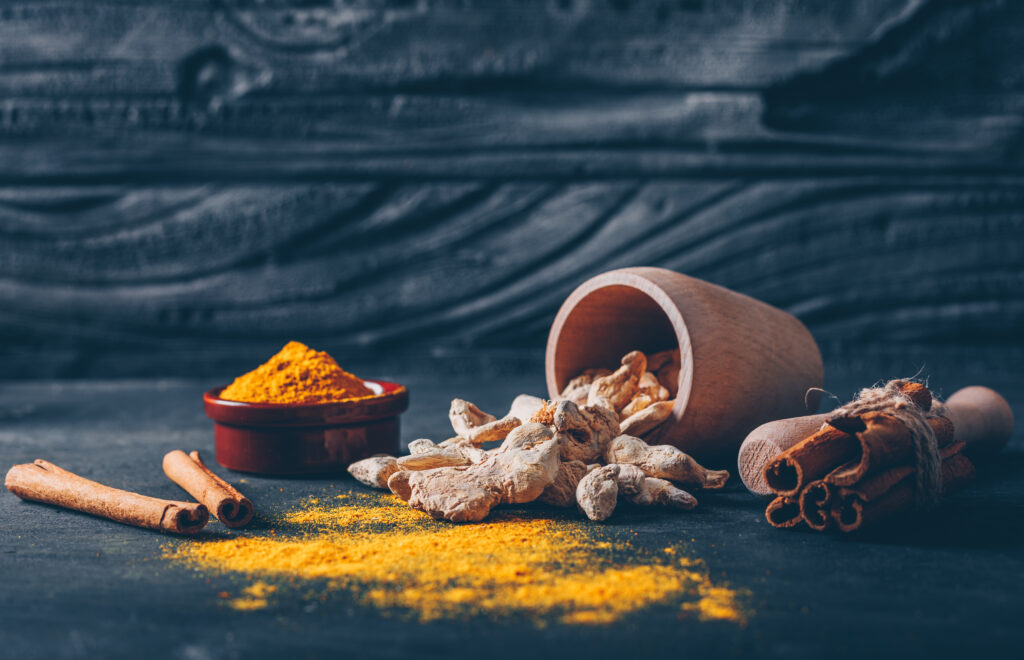
haridra is well-known for its potent anti-inflammatory properties, primarily attributed to its active compound, curcumin. Here are five key anti-inflammatory properties of haridra:
- Inhibition of Inflammatory Pathways: Curcumin has been shown to inhibit multiple inflammatory pathways in the body, including the NF-kB pathway, which plays a central role in regulating inflammation. By blocking NF-kB activation, curcumin helps reduce the production of pro-inflammatory cytokines and enzymes, thereby alleviating inflammation.
- Reduction of Pro-inflammatory Mediators: Haridra can decrease the expression and activity of various pro-inflammatory mediators, such as cyclooxygenase-2 (COX-2) and inducible nitric oxide synthase (iNOS). These enzymes are involved in the production of inflammatory molecules like prostaglandins and nitric oxide. By inhibiting their activity, curcumin helps dampen inflammation.
- Antioxidant Activity: Inflammation and oxidative stress often go hand in hand, with oxidative stress contributing to the initiation and perpetuation of inflammation. Curcumin’s potent antioxidant properties help neutralize free radicals and reactive oxygen species, reducing oxidative damage to cells and tissues and consequently mitigating inflammation.
- Modulation of Inflammatory Gene Expression: Curcumin can modulate the expression of genes involved in inflammation, influencing the production of inflammatory proteins and signaling molecules. By regulating gene expression, curcumin helps maintain a balanced inflammatory response in the body, preventing excessive or chronic inflammation.
- Protection Against Inflammatory Diseases: Numerous preclinical and clinical studies have demonstrated the anti-inflammatory effects of haridra and its potential therapeutic benefits for various inflammatory conditions, including arthritis, inflammatory bowel disease, and cardiovascular disease. By reducing inflammation, haridra may help alleviate symptoms and improve outcomes in individuals with these conditions.
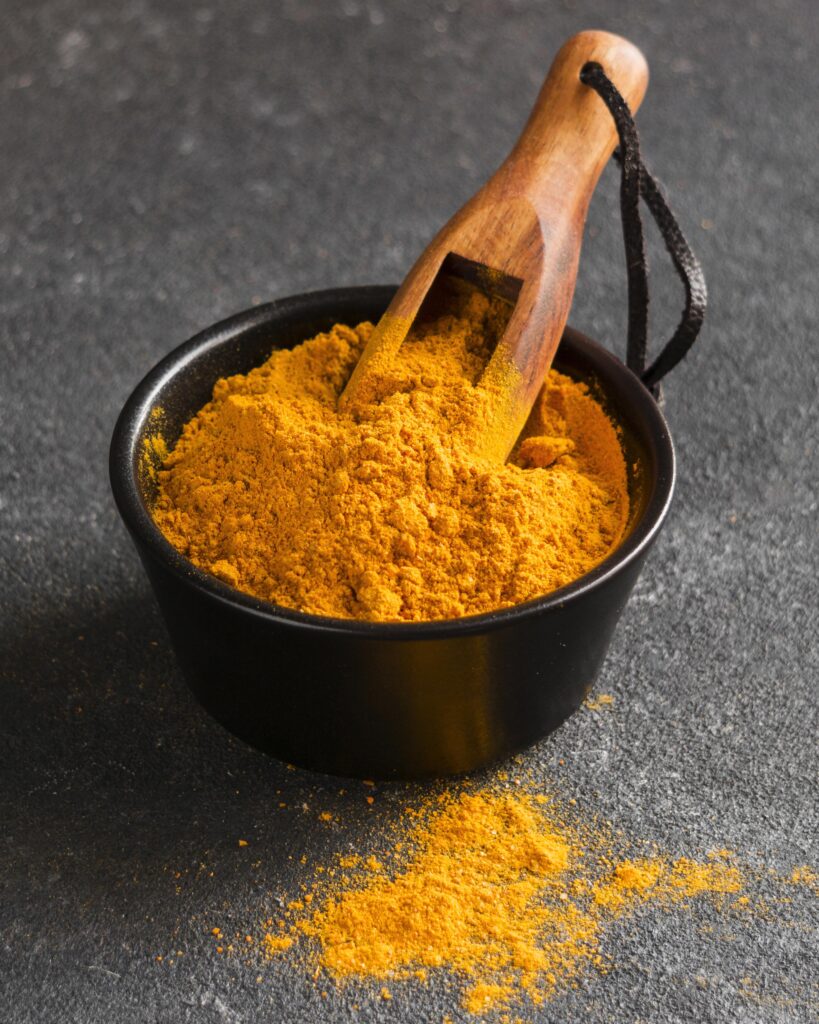
7 Proper Methods of Consumption of Turmeric
Haridra can be consumed in various forms, including fresh or ground spice, supplements, teas, and extracts. Adding turmeric to your diet or taking supplements can be an effective way to reap its potential health benefits, but it’s essential to consider factors like dosage and bioavailability.
- Fresh Haridra Root: You can use fresh turmeric root by grating it or finely chopping it and adding it to dishes like curries, soups, stir-fries, smoothies, or juicing. Fresh haridra has a more potent flavor compared to dried haridra powder.
- Haridra Powder: Haridra powder is the most common form of haridra available and can be used in cooking or consumed as a supplement. Add haridra powder to your favorite recipes, such as curries, stews, rice dishes, or scrambled eggs, to incorporate its vibrant color and flavor.
- Golden Milk: Golden milk, also known as haridra milk or haridra latte, is a popular beverage made by combining haridra with milk (or a plant-based milk alternative), spices like cinnamon and ginger, and a sweetener like honey or maple syrup. Heat the ingredients together in a saucepan, then strain and enjoy as a soothing and nutritious drink.
- Haridra Supplements: Haridra supplements, typically available in the form of capsules or tablets, provide a concentrated dose of curcumin, the active compound in haridra. When choosing a haridra supplement, look for one that contains a standardized extract with high curcumin content and preferably includes black pepper extract (piperine) or other enhancers to improve absorption.
- Haridra Tea: Haridra tea is another popular way to enjoy the benefits of haridra. You can make haridra tea by steeping grated or powdered haridra in hot water, along with other flavorings like lemon, ginger, and honey. Strain and enjoy as a warming and soothing beverage.
- Haridra Paste: Haridra paste, also known as “golden paste,” is made by cooking haridra powder with water and black pepper to enhance absorption, along with a small amount of oil (such as coconut or olive oil) to improve bioavailability. The paste can be stored in the refrigerator and added to various dishes or beverages.
- Haridra in Salad Dressings and Dips: Incorporate haridra into homemade salad dressings, marinades, sauces, and dips to add flavor and color while reaping its potential health benefits.
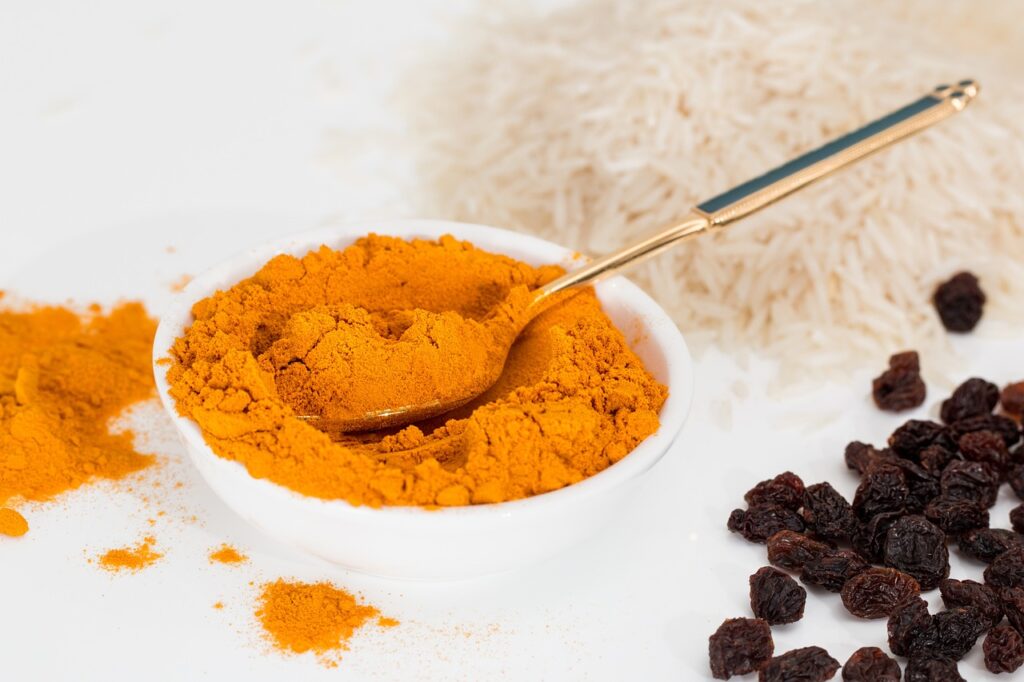
When consuming haridra, it’s essential to consider its bioavailability, as curcumin is poorly absorbed on its own. Pairing haridra with black pepper, fats (such as coconut oil or avocado), or consuming it alongside foods that contain healthy fats can enhance absorption. Additionally, cooking haridra can increase its bioavailability compared to consuming it raw.
5 Magical Health Benefits of Haridra
Curcumin is the active compound in Haridra responsible for many of its health benefits. Research suggests that curcumin has antioxidant, anti-inflammatory, and antimicrobial properties, making it potentially beneficial for conditions such as arthritis, heart disease, and even certain cancers.
- Powerful Anti-Inflammatory Properties: Curcumin, the main bioactive compound in haridra, has potent anti-inflammatory properties. It inhibits inflammatory pathways in the body, reducing the production of pro-inflammatory cytokines and enzymes. This makes haridra effective in managing chronic inflammatory conditions like arthritis, inflammatory bowel disease, and others.
- Antioxidant Activity: haridra is rich in antioxidants, which help neutralize harmful free radicals and oxidative stress in the body. By reducing oxidative damage to cells and tissues, haridra may help prevent chronic diseases, support healthy aging, and boost overall well-being.
- Supports Joint Health: Due to its anti-inflammatory and antioxidant properties, haridra is often used to alleviate joint pain and stiffness associated with arthritis and other inflammatory joint conditions. Regular consumption of turmeric or curcumin supplements may help reduce inflammation in the joints and improve mobility and quality of life for those with arthritis.
- Promotes Heart Health: Haridra may benefit heart health in several ways. It helps lower levels of inflammation and oxidative stress, both of which are risk factors for heart disease. Turmeric also supports healthy cholesterol levels by reducing LDL (bad) cholesterol and triglycerides while increasing HDL (good) cholesterol. Additionally, turmeric may help improve endothelial function, which is essential for proper blood vessel function and circulation.
- Potential Cancer Prevention: Some studies suggest that haridra may have anticancer properties and could help prevent the development and progression of certain types of cancer. Curcumin has been shown to inhibit the growth and spread of cancer cells, induce apoptosis (cell death) in cancer cells, and reduce angiogenesis (the formation of new blood vessels that support tumor growth). While more research is needed in this area, turmeric shows promise as a natural adjunctive therapy for cancer prevention and treatment.
Important Advice: While these health benefits of haridra are supported by scientific evidence, it’s essential to consume it as part of a balanced diet and lifestyle. Always consult with a healthcare professional before using haridrasupplements, especially if you have any underlying health conditions or are taking medications, to avoid potential interactions or adverse effects.
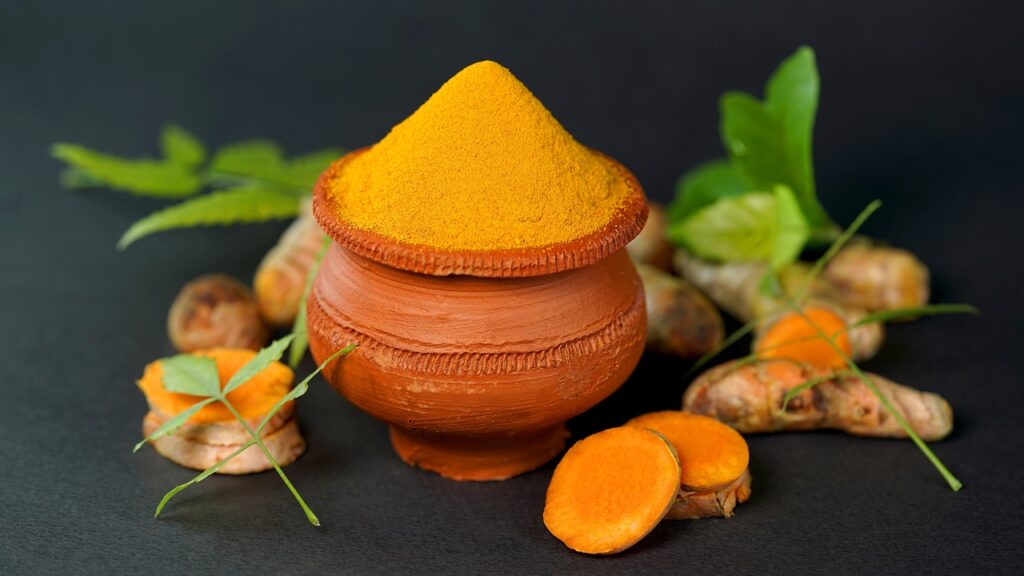
Antioxidant Effects
Turmeric contains powerful antioxidants that help neutralize harmful free radicals in the body, which can contribute to aging and disease. Consuming turmeric regularly may support overall health by protecting cells from oxidative damage.
- Neutralizing Free Radicals.
- Protecting Against Oxidative Stress.
- Preserving Cellular Health.
- Supporting Skin Health.
- Boosting Immune Function.
- Protecting Against Chronic Diseases.
- Enhancing Detoxification.
Recently I have also discussed about Brain Fog and what are the major causes of Brain Fog.

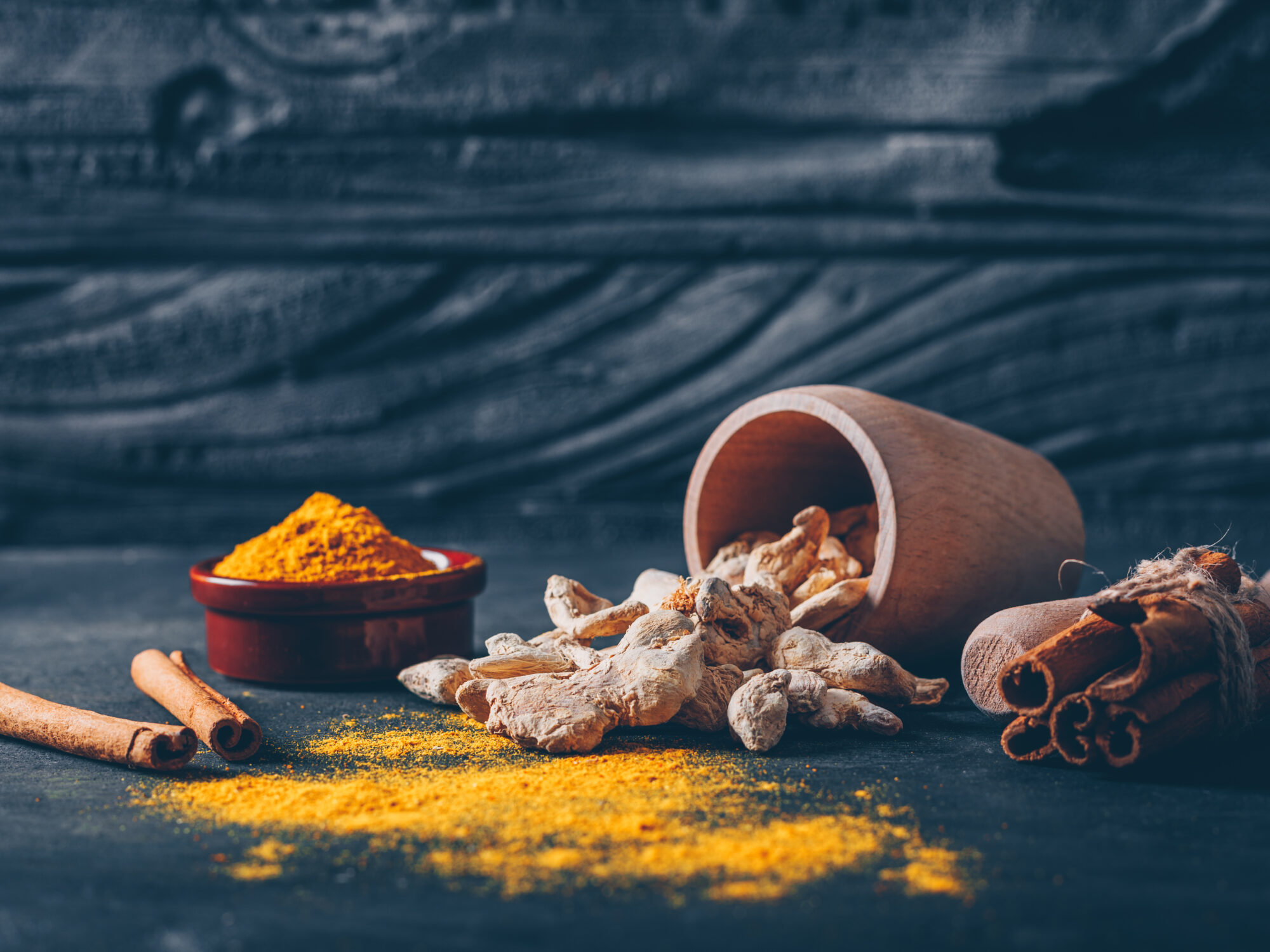
Every time I visit your website, I’m greeted with thought-provoking content and impeccable writing. You truly have a gift for articulating complex ideas in a clear and engaging manner.
Hello i think that i saw you visited my weblog so i came to Return the favore Im trying to find things to improve my web siteI suppose its ok to use some of your ideas
I am not sure where youre getting your info but good topic I needs to spend some time learning much more or understanding more Thanks for magnificent info I was looking for this information for my mission